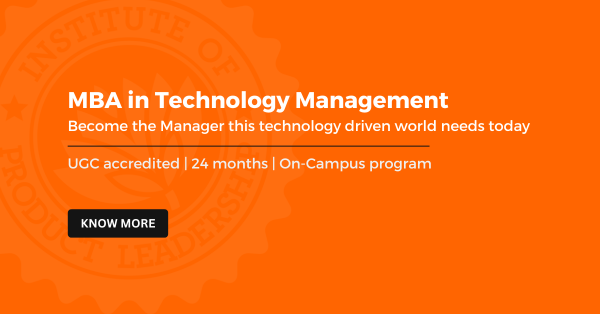Guide to Mastering AI: MBA in Artificial Intelligence for Future Leaders
- Career
- 4 min read
There was a time when Artificial Intelligence was just a subplot in sci-fi movies. Now, it’s shaping boardroom decisions. From automated customer service to predictive analytics in marketing, AI has gone from niche to necessary.
But while the technology is powerful, the real advantage lies in knowing how to apply it in business.
That’s where the MBA in Artificial Intelligence comes in.
Unlike traditional business degrees, this one is built for the AI age—designed to shape professionals who can make data-driven decisions, lead machine learning projects, and understand the real-world impact of AI on business strategy. It’s not about writing code. It’s about learning how AI works and how to use it to drive growth.
Let’s break it down.
- An MBA in Artificial Intelligence combines business strategy with AI, machine learning, and data science.
- It trains professionals to drive AI-led change across sectors, not merely comprehend the tech.
- You don’t have to program, but you have to be analytically and strategically thinking regarding AI applications.
- Career opportunities are in AI product management, strategy consulting, and leadership positions in data-driven teams.
- Compared to IPL’s MBA in Technology Management, the MBA in AI goes deeper into technical tools and data-led innovation.
Suggested Read: MBA vs MTech: Which One Should You Choose After BTech?
What is an MBA in Artificial Intelligence
An MBA in Artificial Intelligence is a management degree focused on integrating AI technologies with core business practices. It combines the foundational pillars of an MBA—like marketing, operations, strategy, and finance—with in-depth modules on Artificial Intelligence, machine learning, data science, and analytics.
This program is designed to build leaders who:
- Understand how AI models are developed and deployed
- Can translate technical AI insights into strategic business decisions
- Are equipped to manage AI-driven teams and products
In short: It’s where business acumen meets technological fluency.
What You’ll Learn in an MBA in Artificial Intelligence
While course structures vary across institutions, most MBA in AI programs follow a well-rounded and interdisciplinary approach. You’ll typically study:
Core Business Modules
- Strategic Management
- Finance and Budgeting
- Marketing in the Digital Age
- Operations and Supply Chain Management
AI and Data Science Focus
- Introduction to Machine Learning
- Deep Learning and Neural Networks
- Natural Language Processing (NLP)
- Big Data Analytics
- AI Ethics and Responsible Innovation
- Predictive Modeling and Forecasting
Practical Experience
- AI Use Cases Across Industries
- Capstone Projects and AI Business Simulations
- Industry Internships or Research Assignments
- Tools: Python, R, TensorFlow, Tableau, SQL
This blend of business strategy and technical know-how is what sets the MBA in Artificial Intelligence and Machine Learning apart.
Who Should Consider an MBA in AI
You don’t need to be an AI developer. What you do need is a desire to lead innovation and a willingness to learn how these systems work.
An MBA in Artificial Intelligence is ideal for:
- Tech professionals looking to move into leadership roles in AI-driven companies
- Consultants looking to upskill in machine learning and analytics
What unites these people is one thing: they don’t just want to use AI—they want to shape what’s possible with it.
Career Paths After an MBA in Artificial Intelligence
Graduates of an MBA in AI are in high demand. Companies aren’t just hiring engineers anymore. They’re looking for AI-savvy business minds who can lead teams, communicate technical concepts, and create strategic value.
Here are some popular roles:
- AI Product Manager – Oversees development and deployment of AI features in products
- Business Intelligence Manager – Translates data insights into strategic decisions
- AI Strategy Consultant – Helps organizations adopt AI solutions effectively
- Chief Data or AI Officer – Leads company-wide AI transformation
- Innovation and Transformation Lead – Drives change through automation and intelligent systems
These roles are available across industries:
- Banking and FinTech
- Healthcare and Life Sciences
- Retail and E-commerce
- Manufacturing and Smart Logistics
- EdTech and Media
Advantages of Pursuing an MBA in Artificial Intelligence
Here’s why this degree is getting serious attention:
- Future-Proof Skillset: You’ll learn tools and technologies that are reshaping global business.
- Cross-Functional Leadership: You’ll be able to talk to engineers, data scientists, marketers, and C-suite leaders—all in the same room.
- High ROI Careers: AI expertise can significantly increase your market value in leadership roles.
- Strategic Thinking: Not just what AI can do—but how and where to apply it.
- Real-World Impact: Be part of the change in how industries run and how decisions get made.
Suggested Read: Which MBA Specialization Is Best for Engineers?
Top Institutes Offering MBA in Artificial Intelligence (India and Global)
If you’re considering enrolling, here are some programs worth exploring:
India
- Institute of Product Leadership – MBA in Technology Management
- Great Lakes Institute of Management – PGPM in AI & Machine Learning
- IIIT Hyderabad – MBA in AI & ML
- Jain University – MBA in Artificial Intelligence and Data Science
International
- Carnegie Mellon University (Tepper School) – MBA with AI and Analytics track
- MIT Sloan – Business Analytics & AI electives
- INSEAD – Electives in AI for Business Strategy
These programs vary in depth, focus, and delivery style (online vs. hybrid vs. offline), so it’s worth evaluating them based on your goals.
MBA in AI vs MBA in Technology Management (Institute of Product Leadership)
Both programs prepare professionals for tech-driven leadership—but the focus is very different.
Here’s a quick comparison:
| Feature | MBA in Artificial Intelligence | MBA in Technology Management (IPL) |
|---|---|---|
| Primary Focus | Business + AI, ML, Data Science | Business + Product, Tech Leadership |
| Skill Depth | Strong emphasis on algorithms, analytics, data modeling | Strong emphasis on product lifecycle, customer experience, and agile management |
| Best Fit For | Aspiring AI consultants, CDOs, AI product leads | Aspiring product managers, digital transformation leaders, tech strategists, Aspiring Tech Consutants |
| Tools Taught | Python, TensorFlow, SQL, AI platforms | Roadmapping tools, Agile/Lean, OKRs, Product frameworks |
| Career Outcomes | AI Consultant, Data Strategist, Business Analyst | AI Product Manager, Program Manager, Tech Consultant, Business Analyst |
| Pedagogy Style | AI + Business hybrid with applied ML cases | Industry-driven with experiential learning, real product labs |
Final Word on the Comparison
- Choose the MBA in Artificial Intelligence if your career goals revolve around leading AI-powered initiatives, working on ML projects, diving deep into ML algorithms, or diving deep into analytics.
- Opt for MBA in Technology Management from IPL if you want to build and manage AI & tech products, work across design-engineering-business functions, or scale digital teams.
The MBA in Artificial Intelligence isn’t just another MBA—it’s a signal. A signal that you’re ready to lead in a world that’s being rewritten by data and algorithms. As industries evolve, this degree puts you at the intersection of smart technology and smart strategy.
And here’s the truth: AI is only going to get better. The question is—will you be someone who watches it happen, or someone who helps shape what happens next?
The choice, as always, is yours.
Frequently Asked Questions (FAQs)
1. What is an MBA in Artificial Intelligence?
An MBA in Artificial Intelligence is a postgraduate degree that fuses business education with expertise in AI technologies. It prepares students with competence to apply AI solutions in business strategies, emphasizing fields such as machine learning, data analytics, and decision-making using AI.
2. Is an MBA in Artificial Intelligence worth it?
Yes, an MBA in Artificial Intelligence can be very useful. It gets professionals ready to take on leadership positions in a fast-changing technology environment where integration of AI is becoming increasingly important across sectors. Graduates tend to find placements in areas such as finance, healthcare, and technology, where AI-based strategies are sought after.
3. Can non-technical students pursue an MBA in Artificial Intelligence?
Yes. Most MBA programs in AI are tailored for non-technical students. These programs emphasize the strategic use of AI in business environments, offering foundational knowledge in AI concepts without the need for prior coding skills.
4. What are the career prospects after completing an MBA in Artificial Intelligence?
Graduates have several career opportunities available to them, such as AI Product Manager, Business Intelligence Analyst, Data Strategist, and AI Consultant. The need for experts to close the gap between AI technology and business strategy is increasing across a number of industries.






